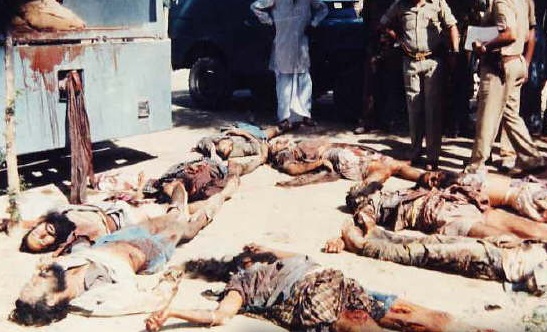New York, United States (December 29, 2013): “Sikhs For Justice”, a US based human rights group while supporting the prosecution of Indian deputy counsel general Devyani Khobragade, welcomed the 2013 report of the UN Special Rapporteur on extrajudicial, summary or arbitrary executions, which highlights that impunity represents a major challenge in India. Mr. Christof Heyns, Special Rapporteur who visited India in 2012, presented the report to UN Human Rights Council (UN HRC), recommended ‘a series of legal reforms and policy measures aimed at fighting impunity and decreasing the level of unlawful killings in India”.
“Ms. Khobragade should be tried in the US Court as, we are in a country where law of land is supreme and immunity to anyone based on their official position is unacceptable”, stated Sikh Rights group legal advisor Gurpatwant Singh Pannun, who practices international law in New York. Prime Minister Manmohan Singh continues to provide impunity in India to its cabinet members like Kamal Nath and other leaders who lead death squads in November 1984 to kill Sikhs, and now by demanding immunity for Khobragade from US government, have started expanding its nefarious “Wings of Impunity” in foreign countries as well, added attorney Pannun.
Mr. Heyns, UN Special Rapporteur reported that “Impunity represents a challenge in India not only in cases of recent violations of right to life, but also of those perpetrated in the past in respect of which effective investigations and prosecutions still have not been conducted. Complaints were widely raised that wheels of justice, when they turn, do so too slowly. Legal proceedings drift for years, while alleged perpetrators remain at large in the community, often on bail.”(page 14, Section 64).
Attorney Pannun stated that the most recent case where Indian Government is protecting, shielding, and covering up the charges against New York based deputy counsel general Devyani Khobragade and demanding immunity from the US government is in line with the 2013 report of UN Special Rapporteur. The act of Indian Government seeking immunity for Ms. Khobragade clearly shows that as reported by Mr. Heyns, Special Rapporteur, India continues to provide cover to its officials even though they have been accused of criminal activity” added attorney Pannun.
Khobragade is accused of paying her far less than pledged in documents to US immigration authorities, and according to Richard’s family, forcing her to work 17 hour days without time off and refusing to let her leave the US. Khobragade denies the accusations, and she and Indian officials say US law enforcement unnecessarily humiliated her when she was arrested. The diplomat, who has been released on bail, denies all the charges and has in turn accused Ms Richard of theft and attempted blackmail.
The Special Rapporteur in 2013 report is concerned with the obstacles to hold public servants, including members of the security forces, accountable, particularly due to statutory immunities provisions. Section 197 of the CPC requires prior sanction from the concerned government before cognizance can be taken of any offence by a public servant for criminal prosecution. Attorney Pannun stated that this provision effectively renders a public servant immune from criminal prosecution as in the cases of members of Indian Parliament, who openly lead death squads in 1984 to hunt the Sikh community throughout India. The protection given to perpetrators of 1984 genocidal violence against Sikhs encouraged a culture of impunity and lead to further recurrence of violations, as in the case of Modi, responsible for sponsoring attacks on Muslim community during 2002, added attorney Pannun.
Special Rapporteur’s report also noted that ‘Delay in judicial proceedings constitutes one of India’s most serious challenges and has clear implications for accountability. For example, lengthy and ineffective proceedings exit in Punjab where large-scale enforced disappearances and mass cremations occurred between the mid-1980s and 1990s.” The situation is aggravated by the fact that security officers who committed human rights violations are frequently promoted rather than brought to justice. The Special Rapporteur has heard of the case of Mr. Sumedh Singh Saini, accused of human rights violations committed in Punjab in the 1990s, who was promoted in March 2012 to Director General of Police in Punjab.”(Page 14, Section 67-70).
Since Indian Government has extended a standing invitation to the mandate-holders of all thematic special procedures of the UN Human Right Council to visit India, the rights group have initiated an “Action Alert” asking the community to email to Mads Andenas, Chair-Rapporteur for UN “Working Group on Arbitrary Detentions” and demand that Mr. Andenas visit India to gather first-hand information from Sikh detainees, their families or representatives on their cases of deprivation of liberty.

